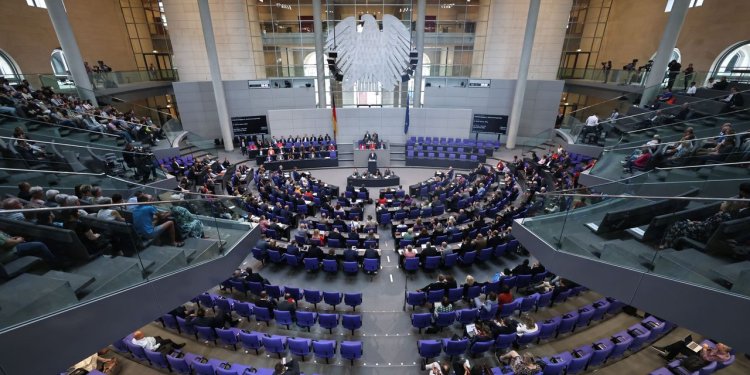A German Heating Law Hits the Climate Limit
A costly plan to overhaul home central heating proves a bridge too far. By The Editorial Board Updated July 6, 2023 6:44 pm ET A session of the German parliament Bundestag in Berlin, June 15. Photo: Clemens Bilan/Zuma Press Even Germans have their limits when it comes to expensive climate policies. Witness the potential collapse of a ruinously expensive plan to reduce carbon emissions from home heating in the snowy northern European country. The Buildings Energy Act, commonly known as the heating law, is on the skids. The coalition government led by Chancellor Olaf Scholz had hoped to push it through Parliament this week before lawmakers depart for summer vacation. But on Wednesday the Federal Constitutional Court ruled that the legislation has been through so many last-minute c


A session of the German parliament Bundestag in Berlin, June 15.
Photo: Clemens Bilan/Zuma Press
Even Germans have their limits when it comes to expensive climate policies. Witness the potential collapse of a ruinously expensive plan to reduce carbon emissions from home heating in the snowy northern European country.
The Buildings Energy Act, commonly known as the heating law, is on the skids. The coalition government led by Chancellor Olaf Scholz had hoped to push it through Parliament this week before lawmakers depart for summer vacation. But on Wednesday the Federal Constitutional Court ruled that the legislation has been through so many last-minute changes that lawmakers need more time to review it. Parliament will vote in September at the earliest, and the delay may become a death sentence for the bill.
Voters are unlikely to mourn. The bill would force households to replace their central heating systems with greener alternatives. Some homes would have to remove relatively cheap and reliable natural-gas-fired boilers and install untested hydrogen-powered models (for which a green hydrogen supply doesn’t exist) or heat pumps. For neighborhoods that receive steam heating from a common municipal source, bills could skyrocket.
And that’s only an outline of the bill. In typical German fashion, it comes with a bevy of complex deadlines, local zoning mandates and the like—and an equally complex matrix of subsidies.
It’s all too much even for environmentally conscious Germany. A survey this week, taken before the court ruling, found some three-quarters of respondents would prefer that Parliament postpone passing the law. Respondents in another poll opposed banning old-style heating systems “in the foreseeable future” by a margin of 49% to 45%, and 67% of respondents worried the government’s proposals would “overwhelm them financially.”
The constitutional court’s ruling means lawmakers would vote on it a month before state elections in Bavaria and Hesse. This raises the prospect that voters could render their own embarrassing judgment on the law if Berlin insists on pressing ahead. Mr. Scholz probably wishes he and his Green Party coalition partners never raised the issue.
They’re in good company. Former British Prime Minister Boris Johnson in 2021 proposed forcing U.K. households to abandon gas boilers in favor of heat pumps, and his Conservative Party has been trying to run away from the unpopular pledge ever since. The lesson: Green pieties play well politically only until households realize what those policies cost.
Journal Editorial Report: The week's best and worst from Kim Strassel, Allysia Finley, Bill McGurn and Dan Henninger. Images: EPA/AP/PA/Reuters Composite: Mark Kelly The Wall Street Journal Interactive Edition
What's Your Reaction?

















